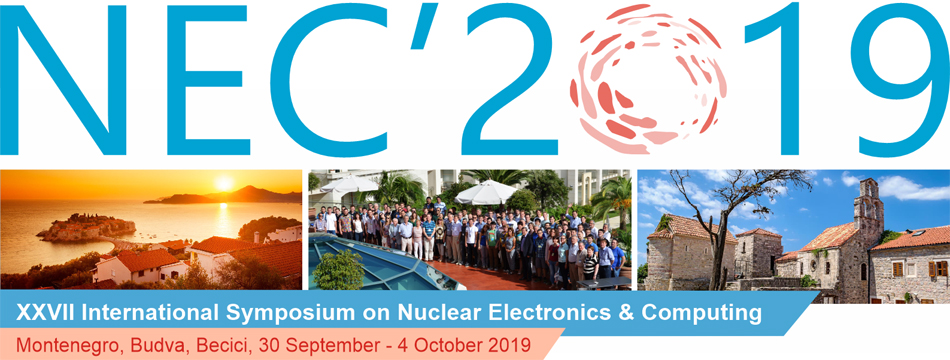Speaker
Dr
Dmitry Eliseev
(RWTH Aachen University)
Description
The Drift Tubes (DT) system is the key detector in the region of the CMS barrel dedicated to the measurement of muon tracks. The signals from about 172000 DT cells must be fast and synchronously acquired to deliver the information about the hits. In the context of increasing the luminosity of the LHC in preparation for the Phase-II the DT system is being upgraded. The main focus of this upgrade is the development of a new generation of read-out electronics based on the FPGA technology. The new on-chamber electronics will provide higher acquisition rates, radiation resistance and flexibility of the trigger settings for the DT system. The DT-chambers will be equipped, depending on chamber type, with 3 to 5 single type boards called OBDTs (On Board electronics for Drift Tubes). Along with better read-out characteristics, the OBDTs ensure less intermediate elements in the read-out chain.
The talk presents an overview of the OBDT architecture. Special attention will be given to the explanation of the FPGA firmware structure and functionality.
Primary authors
Mr
Alvaro Navarro
(Centro de Investigaciones Energéticas, Medioambientales y Tecnológicas)
Dr
Andrea Triossi
(CERN)
Dr
Cristina F. Bedoya
(Centro de Investigaciones Energéticas, Medioambientales y Tecnológicas)
Dr
Dmitry Eliseev
(RWTH Aachen University)
Dr
Ignacio Redondo
(Centro de Investigaciones Energéticas, Medioambientales y Tecnológicas)
Mr
Javier Sastre
(Centro de Investigaciones Energéticas, Medioambientales y Tecnológicas)
Marco Bellato
(Istituto Nazionale di Fisica Nucleare)
Sandro Ventura
(Istituto Nazionale de Fisica Nucleare)
Prof.
Thomas Hebbeker
(RWTH Aachen University)

